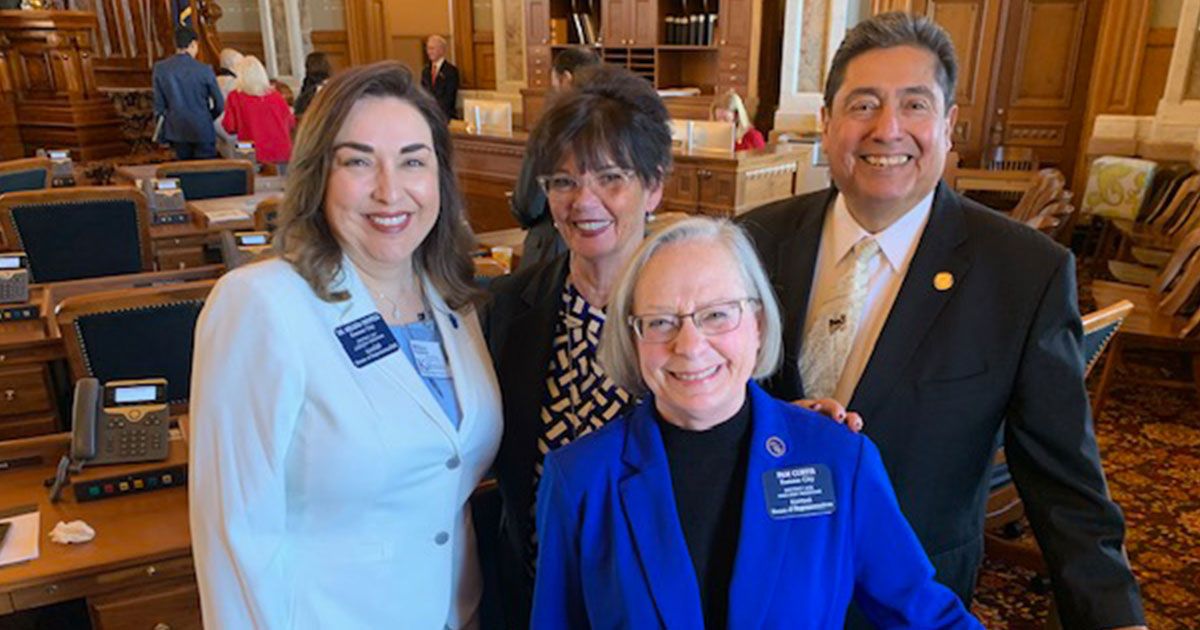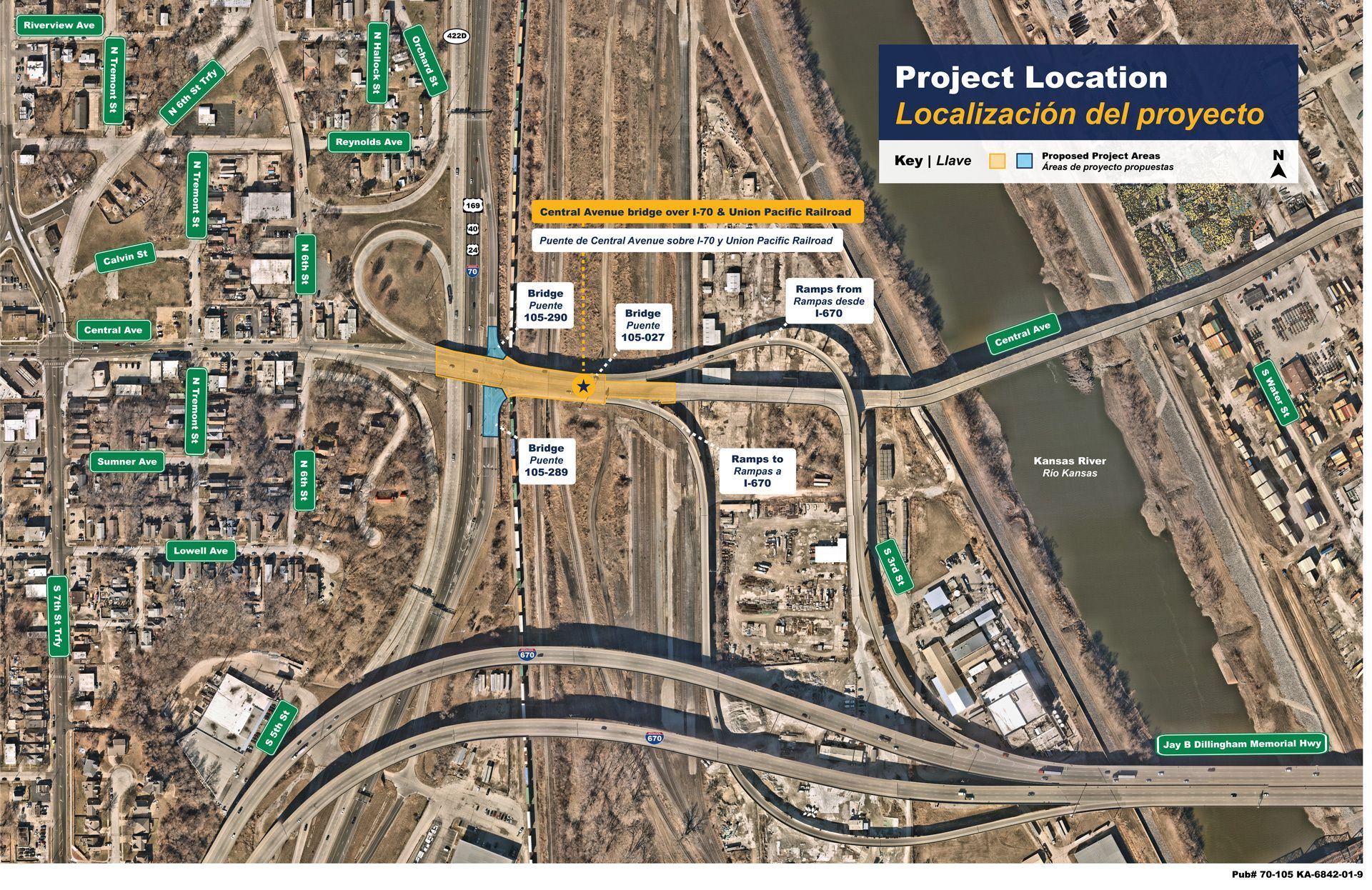2023 Legislative Update 10
Week of March 13 to March 17, 2023
Another very busy week in the Kansas Legislature as work continues both in committees and on the Floor as bills work their way through the process. Thank you to REACH Healthcare for hosting the Wyandotte County Delegation Luncheon and sharing information about the work they do in our community.
The Joint Committee on Information Technology “JCIT” met this week, and I was honored to be elected to serve as the ranking member for the committee. The committee, which consists of 5 member of the Senate and 5 members of the House, studies the use of computers, telecommunications and other information technologies used by state agencies. We also review projects, plans and budgets related to IT and make policy recommendations. It is one of the few legislative committees that focuses on technology.
I had the honor of having Romelia and Vivian spend the day with me at the Capitol as Legislative Pages. We had our picture taken with Lt. Governor Toland and they ran errands as we debated bills on the floor. Their grandma and mom, dear friends of mine, Teresa and Francesca came with them. We rode the cage elevator, visited the State Library and Romelia and her mom Francesca made it all the way to the top of the Dome! Vivian and I made it half-way. There are 296 steps to the top of the dome. It was so nice to have them spend the day with me.
It is a special honor to serve as your state representative. I value and appreciate your input on issues facing state government. Please feel free to contact me with your comments and questions. My office address is Room 452-S, 300 SW 10th, Topeka, KS 66612. You can reach me at (785) 296-7430 or call the legislative hotline at (800) 432-3924 to leave a message for me. You can also e-mail me at pam.curtis@house.ks.gov.
One-Room Schoolhouses, Absent Fiscal Notes & A Rabbit: SB 83 Barely Scrapes By
For over three hours on Tuesday, House members debated
SB 83, the controversial school vouchers bill.
During debate, the bill’s chief advocate, Rep. Kristey Williams (R-Augusta) repeatedly said the bill could send Kansas schools into the past -- an image that was quickly mocked across social media.
"Imagine what life was like 100 years ago, where you had someone that was 12 years old and maybe 6 years old and 15 years old, they're working together, they're helping one another," she said. "Whenever you teach someone, you actually learn material better."
"So you are suggesting that
we
return to one-room schoolhouses?" asked Rep. Jerry Stogsdill (D-Prairie Village), top Democrat on the House Education committee.
In a brief fact check, the
Topeka Capital-Journal wrote, “One-room, one-teacher schoolhouses preformed so poorly 100 years ago that the Kansas State Board of Agriculture's biennial report for 1925-26 called for reforms.”
Williams wouldn’t reject the idea, though, even as social media exploded with jokes about the 1800’s and one-room schoolhouses.
"I'm suggesting education freedom," Williams replied. “Micro schools,” she explained, do not require teachers to be certified or hold degrees, "This is called education freedom with giving the parents the ability to make those choices.”
Rep. Ford Carr (D-Wichita) took issue with the romanticization of 19th-century society. "I can also tell you what was missing from those schools that were in place in the 1800s — and that was people that looked most like me," said Carr, who is Black. "... I for one certainly don't want to go back to anything that was taking place in the 1800s."
On Tuesday’s initial roll call vote, SB 83 passed by a razor thin margin of 61-59. There was an audible gasp in the chamber.
In Wednesday’s final action vote, SB 83 initially failed to receive enough votes for passage. The vote prompted a dramatic “Call of the House,” a political maneuver that provides legislative leadership time to whip votes. A member, deemed the “rabbit, ”goes “missing” -- in reality, they hide in an office watching the chamber’s YouTube livestream until given the greenlight to return. The rest of the body are locked in the chamber and must stay in their seats until the “rabbit” is found, at which point the call is lifted. This happens after leadership believes they’ve whipped enough votes to win.
After numerous Republican votes flipped to YES during Wednesday’s Call of the House, Rep. Bill Sutton (R-Gardner) walked into the chamber and the call was lifted.
SB 83 ultimately passed
64-61.
As for how the Senate will vote, Senate President Ty Masterson (R-Andover)
said, "I think we have the votes... At this point I have no idea exactly what that bill does. But the short answer is yes."
When asked if she would sign the bill because it includes funding for special education and teacher pay raises, Governor Laura Kelly said, "I don't really react very well to game-playing and bribery, or whatever you want to call it…I think it's just really, really unfortunate that there are those in the Legislature who believe that playing those kinds of games is a good idea. They put their own legislative colleagues in a horrible position today, and I think they will live to regret it."
Medicaid Expansion Rally!
Kansans flooded the second floor of the capitol building on Wednesday for a Medicaid expansion rally. The event was hosted and planned by Alliance for a Healthy Kansas, a group of 125 organizations statewide that advocate for KanCare expansion.
Over 7 in 10 Kansans support expanding Medicaid and Kansas is one of 11 states remaining that has failed to expand. So why do Kansans want Medicaid expansion so badly, and why do Republicans block it?
Under expansion, 23,000 jobs would be created. The state has lost out on over $6 billion in federal funds for failing to expand. 75 hospitals in Kansas are vulnerable to closure and many already have. Expansion would be an immense help to these hospitals, especially in rural Kansas.
Republicans have one buzzword they use during Medicaid expansion debates: “Able-bodied adults.” They claim that expansion is essentially enabling and encouraging folks to not work, another predictable variation of arguments against any sort of government-related safety net.
The reality is, adults between 18 and 65 years old making up to 138% of the federal poverty rate would qualify. For one adult, this means household income is capped at $20,000. For a family of four, this means annual household income is capped at $41,400. These people are working, despite what Republican’s claim.
Chandra Dickson, a teacher and mom from Wichita, shared a captivating, emotional, and all too familiar argument for expansion. One $500 treatment and eight days after receiving her non-Hodgkin lymphoma diagnosis, Chandra’s mother passed away at 62 years old.
“If my mother had qualified for KanCare she would have gotten the routine health care that she desperately needed and that she would still be here with myself and my daughter,” Chandra Dickson said. “I miss her every single day. I tell her story in memory because she would want me to, because we would not want any other Kansan to go through what my family went through.”
Governor Laura Kelly spoke to the crowd and reiterated her commitment to fighting for health care coverage. Medicaid expansion is one of her top priorities and has been for years.
"We just have to make sure legislative leadership gets the message and gets the bill onto the floor for debate. Like me, I know many of you in this room have been fighting for Medicaid expansion for years. I know it can be frustrating, but we must keep up the fight. Don't give up. I will keep fighting right along with you."
Curtis Sneden, president of the Topeka Chamber of Commerce, hammered on why failing to expand, “put simply, is bad business.”
“Placing the burden of uncompensated health care on our health care system, when the solution is so straightforward, that’s bad for business,” he told the crowd.
Physician Roy Jensen, vice chancellor and director of the University of Kansas Cancer Center and a member of the national board of directors for the American Cancer Society’s Cancer Action Network, told the rally about the profound impacts failing to expand has on patients statewide.
“If you are unlucky enough to be without insurance of any type on that day that you are diagnosed with cancer, five years from that date there is a 50% decreased likelihood that you will be alive,” Jensen said. “That’s an astounding statistic and it’s a moral indictment of not expanding care.”
The federal government’s 2021 American Rescue Plan bolstered financial support, giving an additional $370 to $450 million over the next 2 ½ years to states like Kansas which have repeatedly failed to pass expansion. This is enough money to cover the state’s share of expansion for eight years.
More facts:
- Low-income Americans in states with Medicaid expansion have a 6.1% lower rate of mortality.
- Low-income women in states with expansion are 25% more likely to receive mammograms than those in states without expansion.
A Representative Democracy & Legislative Pay
.
Lawmakers make a pay so low that many can’t afford to serve. Many people must accept a significant pay cut from their day jobs to serve, and legislative pay is not enough to make up the difference
The cost of hotel stays, gas, wear and tear on vehicles, meals, interstate tolls, and other expenses that accompany traveling to Topeka for three to four months of the year add up to far more than the current legislative pay rate.
Many young lawmakers see a net decrease in income while serving. This has a predictable, straightforward effect of excluding hundreds of thousands of Kansans from ever serving -- no matter how passionate, talented, or dedicated they may be.
House Democratic Leader Vic Miller hit the nail on the head when he told the Topeka Capital-Journal, "If we're really wanting to attract a diverse group of people to represent a diverse population, we need to look at stuff like this.”
The new Legislative Modernization Committee pushed out
SB 229. The bill creates an independent commission meant to finalize a report with recommendations for legislative pay adjustments. The bill is written to only require a vote only if the commission’s recommendations are rejected by the legislature.
The commission will not consist of currently elected officials, leadership staff, lobbyists, or others with a potential conflict of interest.
Chief proponent of the bill, lobbyist and former legislator Jason Watkins, shared Leader Miller’s sentiments. “...If you believe in a representative democracy, then there is one thing that should determine whether or not you get to serve in this Legislature. And that is whether or not the voters choose to send you here, not whether or not you can afford to come up here and serve in the Legislature."
SB 229 passed on a
96-26 vote in the House.
ESG: What is it and why are lawmakers so obsessed?
Adding to the growing portfolio of so-called “woke” things to be scared of, Kansas Republicans in both the House and Senate have demonized a popular investment strategy colloquially called “ESG.” The strategy has grown in popularity across the United States in recent years, prompting aggressive backlash from conservative lawmakers -- including those in Kansas.
Simply put, ESG means considering environmental, social, and governance factors during investing decisions. For example, as climate change worsens and global interest in green energy grows, someone following ESG principles may consider investments in wind turbines or electric vehicles to be a more profitable, long-term investment than oil and gas.
Some of the most influential conservative lobbying groups in Kansas oppose the Republicans’ position on ESG. Rather than imposing strict regulations on the free market, the groups suggest allowing capitalism to run its course. If investors don’t want an ESG approach utilized, they can simply say so.
US SIF: The Forum for Sustainable and Responsible Investment, promotes sustainable investing. A December
report from US SIF says about one-eighth of U.S. assets being professionally managed, or $8.4 trillion, are managed by ESG principles.
BlackRock, by some measures, is the biggest investment management company across the globe with more than $10 trillion in assets under management. “Incorporating financially material environmental, social, and/or governance information into investment research and decision-making, based on the conviction that sustainability-integrated portfolios can provide better risk-adjusted returns to investors,” BackRock writes on their
website.
There are concerns about the financial impact of such discriminatory policy. “It’s going to cause problems… It’s just the latest moral panic that’s been invented to get the conservatives riled up,” said Rep Rui Xu (D-Westwood). Rep. Xu is the top Democrat on the Financial Institutions & Pensions committee, where the legislation was introduced.
The initial version of the bill faced immediate opposition. KPERS, the pension fund for Kansas teachers and government workers, would have had projected investment losses of over $3.6 billion across 10 years.
Marijuana Goes Up in Smoke
In the Senate this week, hopes for legalizing medical access to cannabis went up in smoke.
SB 135 had a hearing in the Senate Federal & State Affairs committee, but it was ultimately tabled for the remainder of session. The bill created regulations for the distribution, processing, and sale and use of medicinal marijuana.
Despite an interim committee dedicated to studying medical marijuana policy, dozens of states to learn from, and years of advocacy, Chairman Mike Thompson said the issue was “complicated” and “requires more work than we can perform this session.”
Governor Laura Kelly
responded with a call for more activism, saying “I am disappointed that some legislators are saying they don’t want to move forward with legalizing medical marijuana this year – effectively turning their backs on our veterans and those with chronic pain and seizure disorders. If they get their way, for yet another year thousands of Kansans will be forced to choose between breaking the law and living without pain. I encourage Kansans to call their state legislators and tell them to legalize medical marijuana this session.”
Missouri legalized recreational, adult-use marijuana in the November 2022 election.
From the House Floor
- SB 83: Making appropriations for the state department of education for FY 2024, establishing the sunflower education equity act to provide education savings accounts for qualified students, requiring school districts to provide a salary increase to all licensed teachers and defining enrollment of small school districts as the highest enrollment from the preceding four years under the Kansas school equity and enhancement act. Passed on Final Action, 64-61.
- HB 2400: Enacting the Kansas adult learner grant act to facilitate workforce development by providing grants and workforce retention incentive payments to adults who pursue baccalaureate degrees from eligible postsecondary educational institutions in certain fields of study. Passed as amended; 116-6.
- HB 2422: Eliminating the statutory qualifications listed for the chief inspector for boiler safety appointed by the state fire marshal. Passed on Final Action; 121-1.
- HB 2225: Limiting cost recovery for certain electric public utilities’ transmission-related costs. Passed as amended on Final Action; 120-1.
- HB 2331: Designating Lehigh Portland state park. Passed on Final Action, 101-21.
- SB 229: Creating the legislative compensation commission and prescribing powers and duties of the commission and the legislature. Final action - Substitute passed, 96-26.
- SB 14: Updating the version of risk-based capital instructions in effect. Passed as amended on Emergency Final Action, 121-0.
- SB 19: Requiring certain premium taxes to be paid 90 days after each calendar year and basing such premium taxes upon the gross premiums collected for the previous calendar year. Passed as amended on Emergency Final Action, 121-0.
- SB 26: Specifying certain requirements necessary to demonstrate fiscal soundness for health maintenance organizations and Medicare provider organizations applying for certificates of authority. Passed as amended on Emergency Final Action, 121-0.
- HB 2247: Prohibiting banks from requiring a cosigner for an account of a child in the custody of the secretary. Passed as amended on Emergency Final Action, 114-7.
- HB 2388: Requiring that licensing bodies provide verified electronic credentials to credential holders, including military servicemembers and others receiving Kansas credentials based on their credentials from other jurisdictions, and use centralized electronic credential data management systems with instantaneous credential verification and an auditable record. Passed as amended on Emergency Final Action, 121-0.
- HB 2105: Enacting the Kansas earned wage access services act, establishing requirements, duties and prohibitions for persons engaged in earned wage access services and providing for the administration of such act by the office of the state bank commissioner. Passed as amended on Emergency Final Action,
108-13.
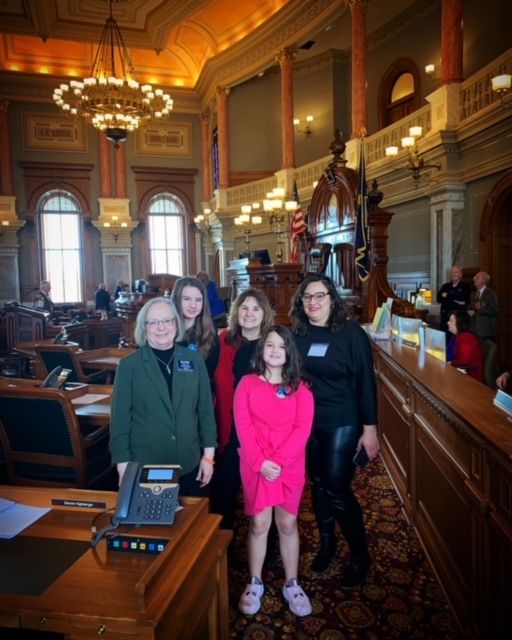
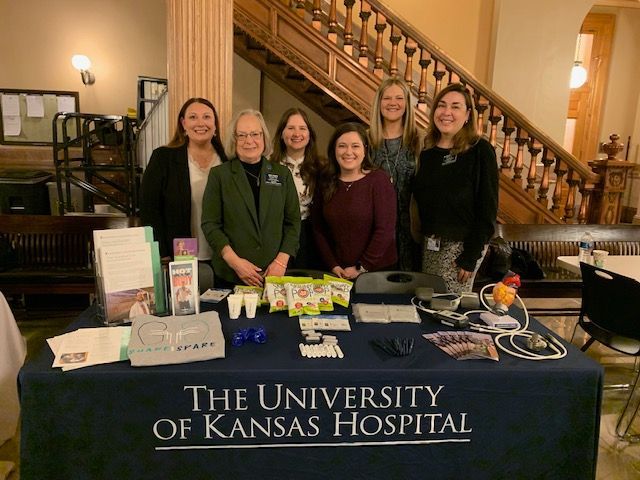
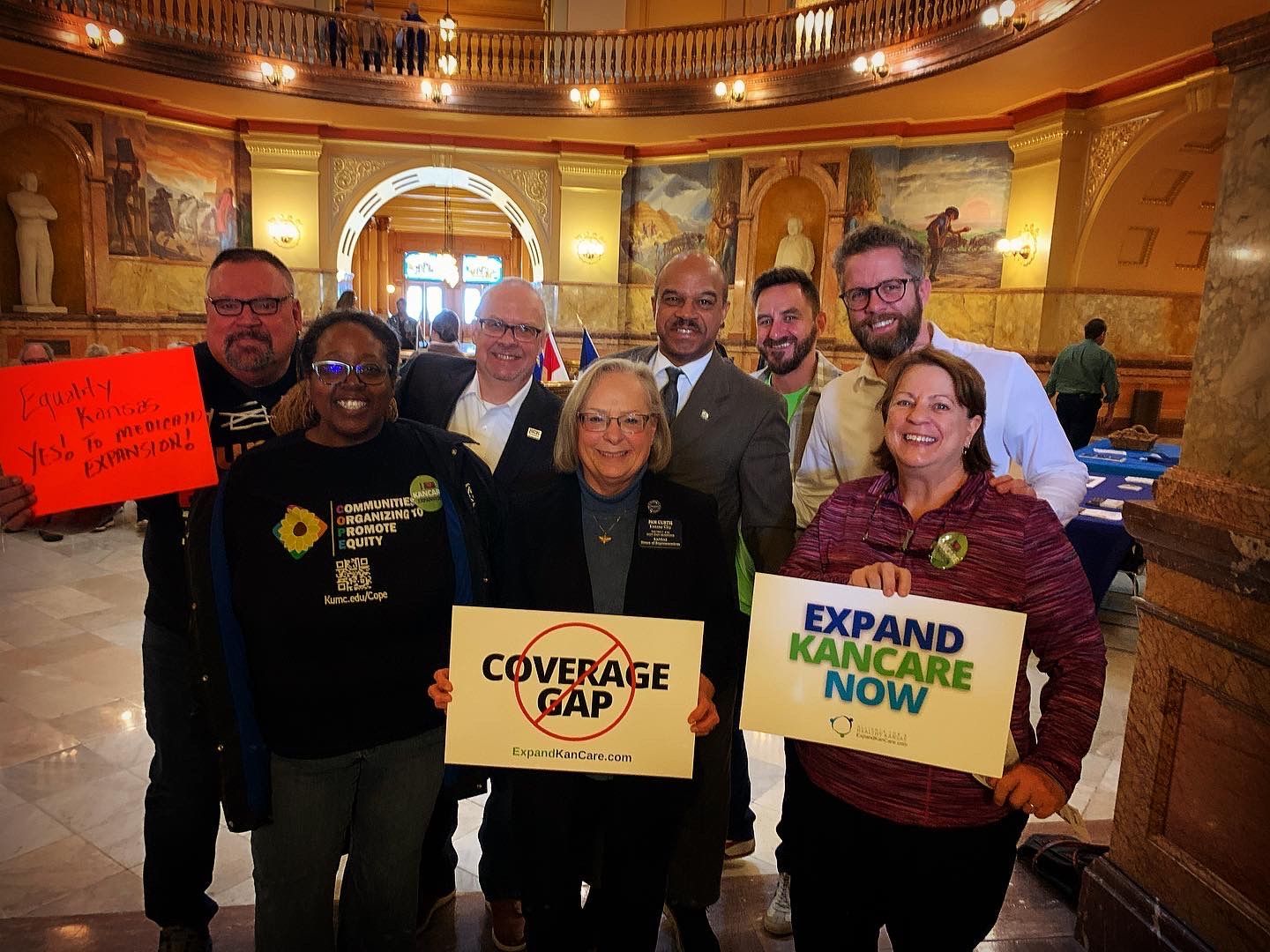
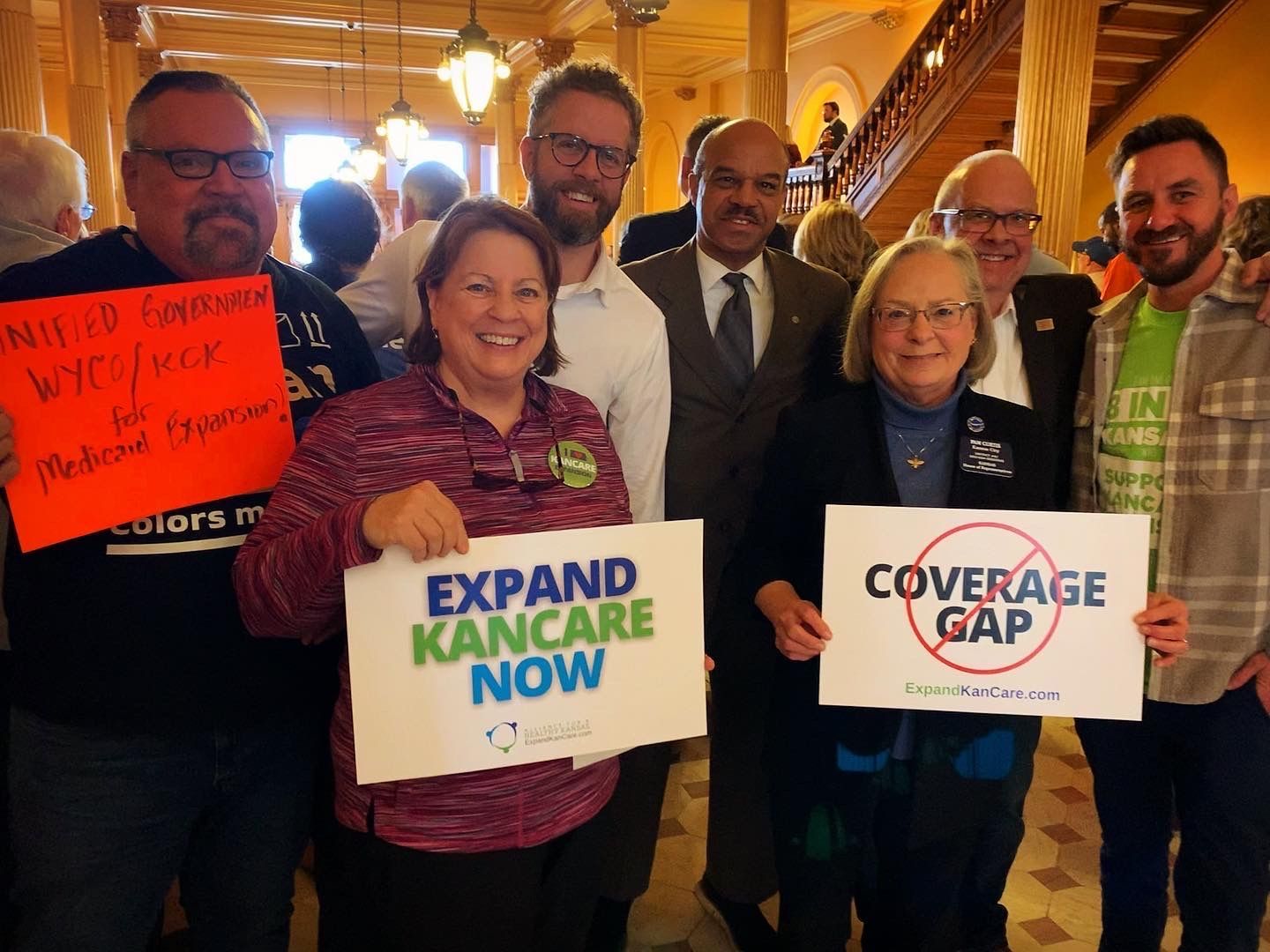

Contact Rep. Pam Curtis
Thank you for reaching out. Please allow 48 to 72 hours for Rep. Curtis to respond to your communication.
Oops, there was an error sending your message.
Please try again later, or email Rep. Curtis directly at info@curtisforkck.com.

